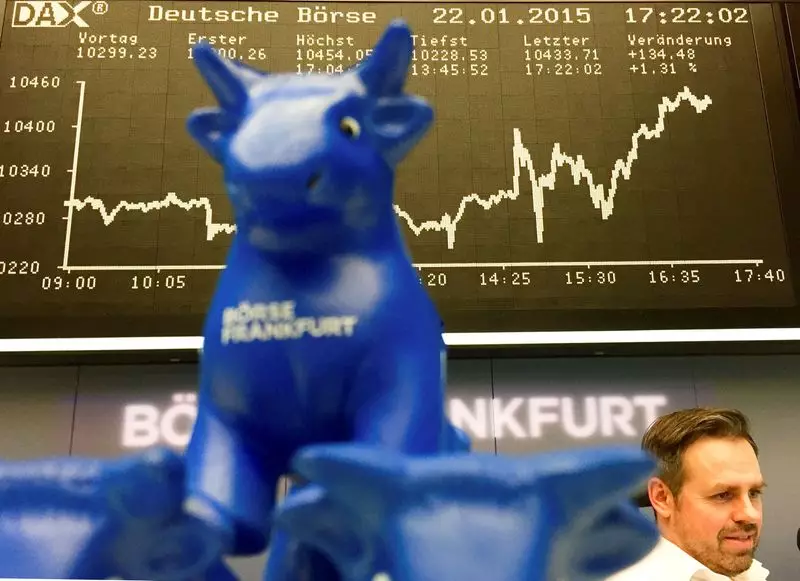The aftermath of the recent U.S. jobs report has led to an interesting scenario in the financial markets. Despite rates resetting higher and the Federal Reserve holding off on cutting interest rates for now, equities have continued to rally. This has led to a situation where equity markets are becoming even more disconnected from the economic reality on the ground.
Investors seem to be turning a blind eye to a multitude of risks that are present in the market. These risks include political volatility in emerging markets, geopolitical tensions, inflated meme stock and crypto trading, elevated inflation and rates, as well as signals pointing towards a possible economic slowdown or recession. Despite all these warning signs, equity markets are trading at record highs and investor sentiment remains elevated.
JPMorgan has taken note of these risks and has adjusted its model portfolio accordingly. The bank has adopted a defensive stance with an underweight rating in equities and overweight positions in commodities and cash. Additionally, JPMorgan has shifted its stance on euro area versus U.S. bonds as expectations for European Central Bank easing have been pushed out due to persistent inflation pressures and stronger economic data.
When it comes to individual equity markets, JPMorgan has a preference for the domestic-leaning FTSE 250 over the more internationally influenced FTSE 100 ahead of the U.K. general election. The FTSE 250 is expected to perform better once the Bank of England starts easing and benefits from stronger domestic economic activity momentum. The U.K. equity market is viewed as trading at a discount, offering a low beta play, exposure to China, and the highest dividend yield among large developed markets.
JPMorgan also sees potential for growth in Chinese equities, driven by improving housing data and stabilizing macroeconomic indicators over the summer months. In Japan, equities have underperformed compared to Europe and the U.S., largely due to a weak yen. However, JPMorgan believes that the acceleration in corporate reforms in Japan presents a medium-term positive outlook. The bank also anticipates that the pressure from the weak yen will ease as the Fed cuts interest rates and the Bank of Japan adjusts its monetary policy.
Despite the various risks and uncertainties present in the global economy, equities continue to defy logic and trade at record highs. Investors should carefully consider their asset allocation and risk tolerance in this environment of disconnect between market performance and economic indicators.

